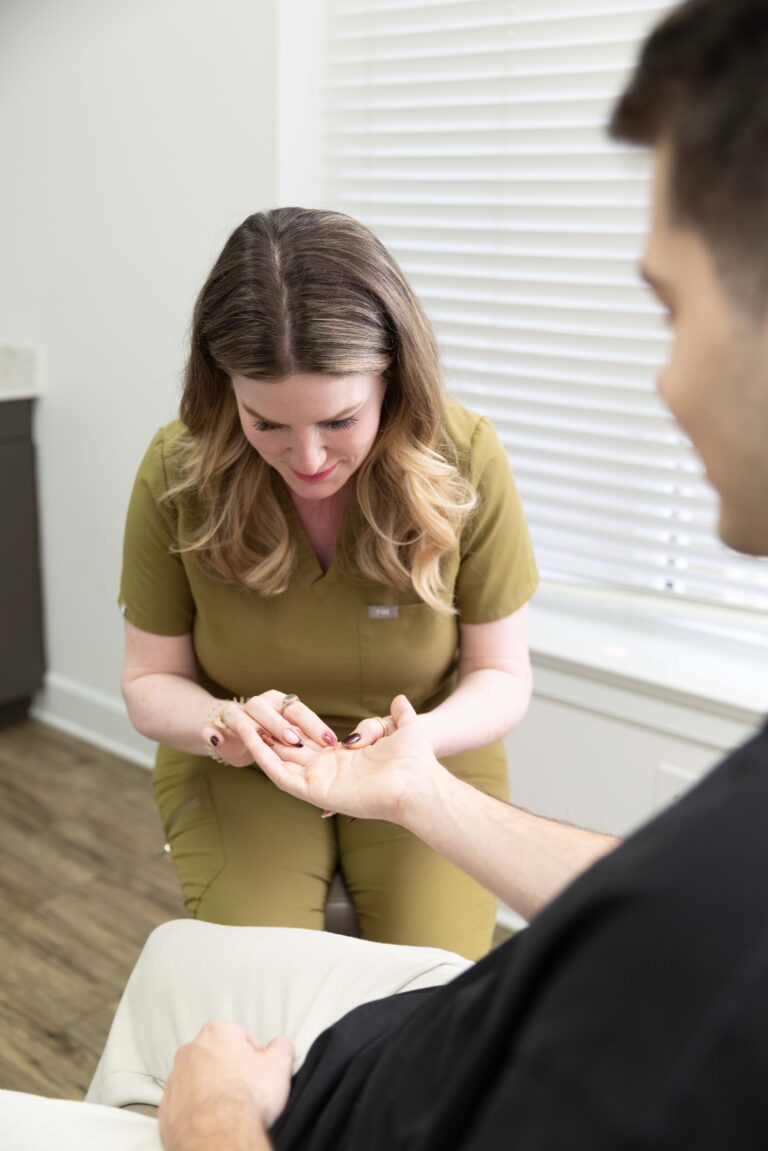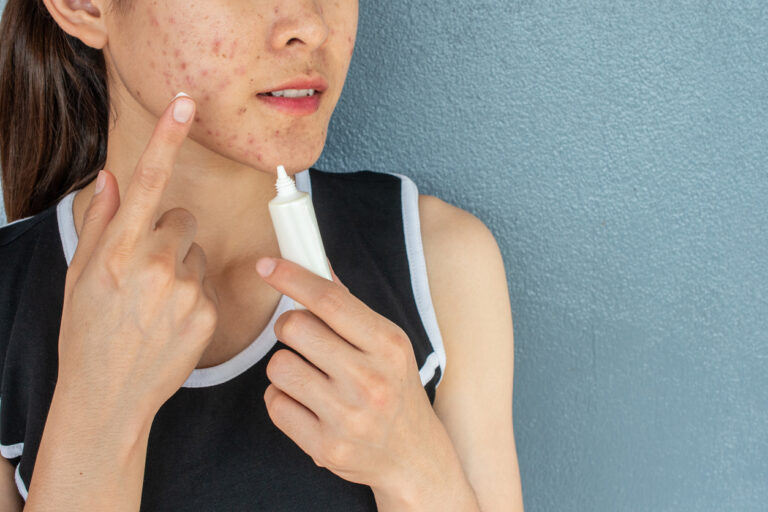Psoriasis is a chronic auto-immune disorder characterized by red, dry, white/silver-scaled, sometimes itchy, lesions on the skin. People with psoriasis have accelerated skin cell growth that leaves buildups or plaques on the surface.
The most common areas of involvement are the scalp, elbows, palms, soles, nails, and knees, although the condition may be localized or generalized over the entire body.
Psoriasis most often shows up in adulthood, is genetic, occurs more commonly in those with Northern European ancestors, and can be triggered by certain medications.
Plaque Psoriasis
Plaque Psoriasis is the most common type. Frequently appear on the elbows and knees. The degree of involvement and effect on daily living helps to dictate the treatment.
Small areas can be safely treated with topical medications or UV light (sunlight or lamp). More widespread involvement or psoriatic arthritis may need systemic medication or a biologic medication.
There are many safe and effective biologics available that target specific pathways in the immune system to block the immune response.
Guttate Psoriasis
Guttate Psoriasis appears in childhood or early adulthood. Guttate means ‘drop-like’ and this psoriasis manifests as small, thin, pink plaques on the skin. Usually develops suddenly in response to a triggering factor. A very common trigger is a strep infection, such as strep throat. Treatments are topics medications or mild exposure to UV light.
Inverse (Flexural or Intertriginous) Psoriasis
Inverse Psoriasis occurs in skin folds-underarms, groin, under breasts. Usually appears beefy red, shiny, and does not have scaling skin. Can be treated cautiously with topical steroid preparations, as these can thin the skin and cause stretch marks in the area. Other topical creams, such as a prescription Vitamin D cream, work by slowing down the growth of skin cells and do not cause the same issues as with long-term steroid use.
Pustular Psoriasis
Pustular Psoriasis most commonly occurs on the hands and feet, although can be anywhere on the skin appearing as white bumps (pustules) on red skin. It is not contagious. Can be treated topically, systemically, or with UV light. A rare form of pustular psoriasis can start suddenly and is considered a dermatologic emergency requiring hospitalization as it can be life-threatening.
Erythrodermic (or Exfoliative) Psoriasis
Erythrodermic Psoriasis is a severe and rare form of psoriasis that causes a fiery redness over much of the skin surface. It can cause pain, itching, and sloughing of skin that will require immediate dermatologic treatment.
Persons with psoriasis tend to have low Vitamin D levels. Taking a daily Vitamin D supplement can be helpful. Turmeric has been shown to reduce inflammation and can be taken orally as a tea. Mix 1 teaspoon turmeric with boiling water, add honey, and black pepper (to increase absorption).
Picking, rubbing, stress, cold weather, smoking, or excessive alcohol intake will exacerbate Psoriasis. Psoriasis is also associated with heart disease and stroke due to chronic inflammation, obesity, and diabetes. The importance of maintaining a healthy weight, getting adequate aerobic exercise, minimizing stress, and treating your psoriasis is evident.


